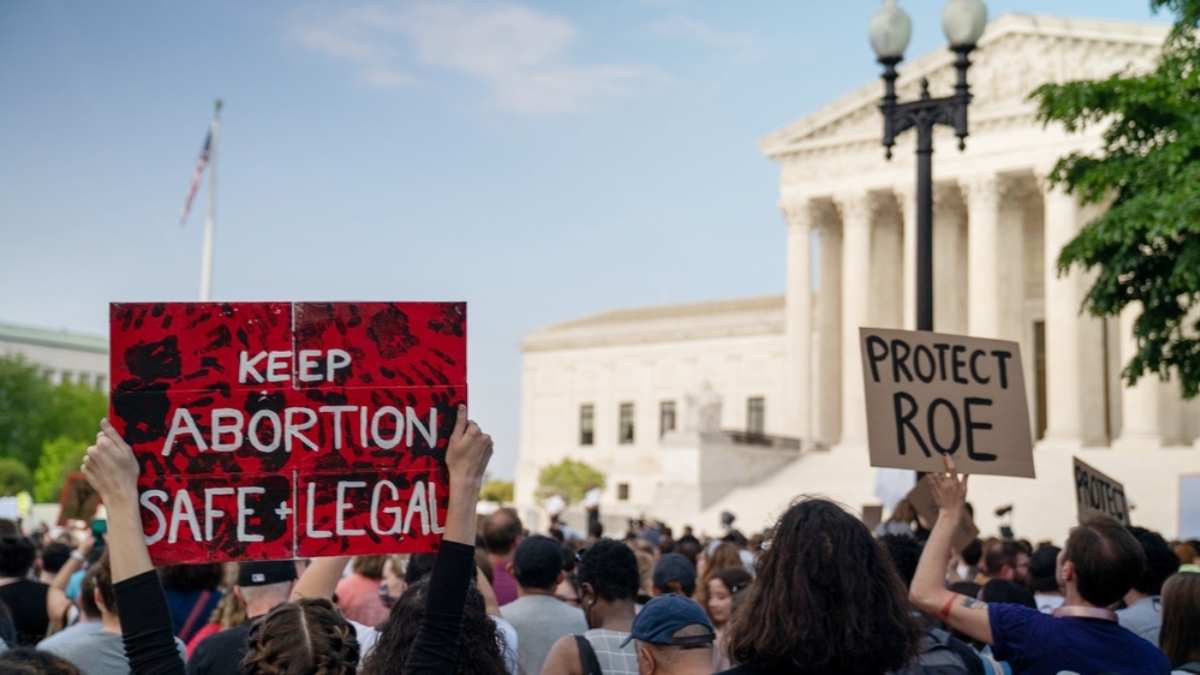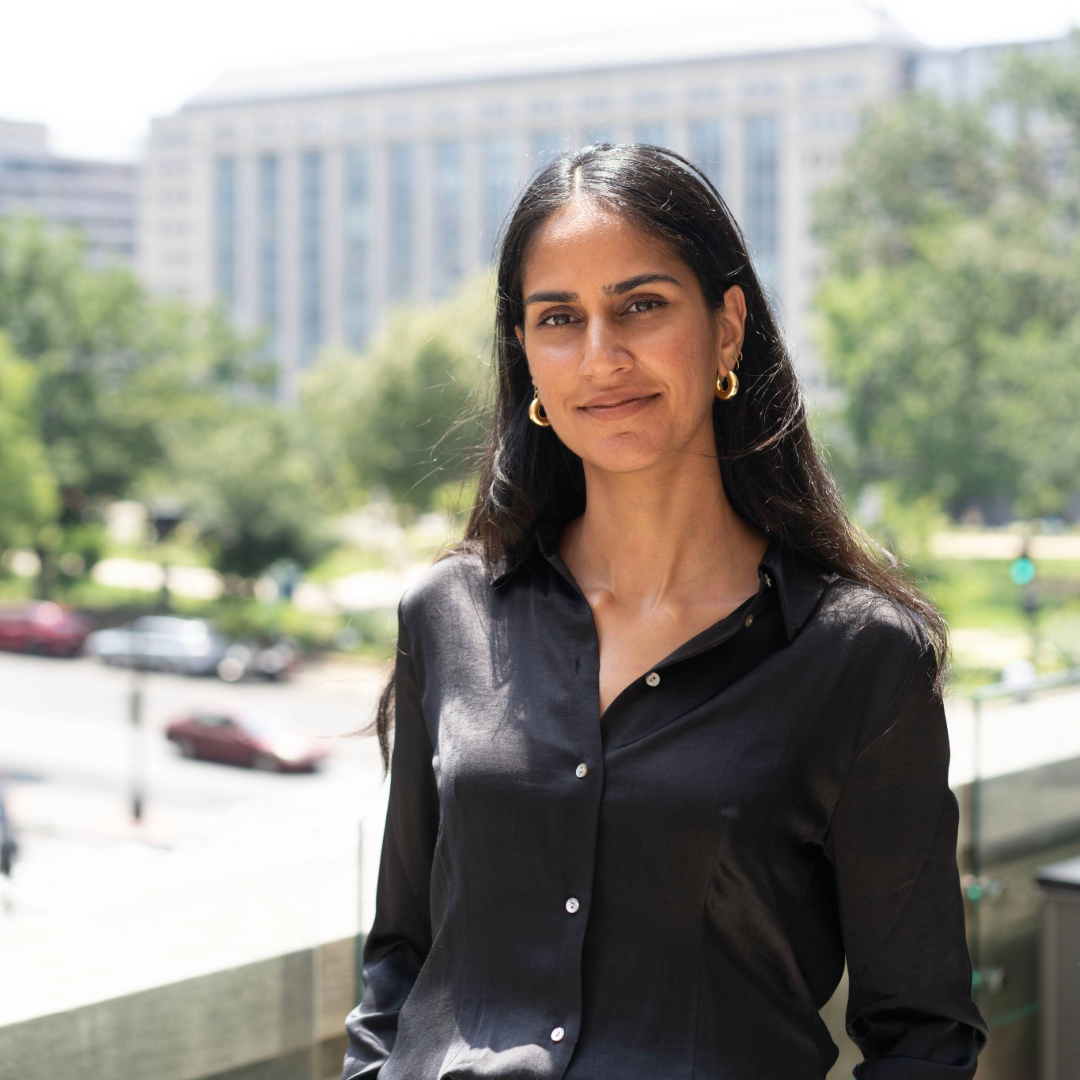Anonymity Online Keeps Pregnant People Safe
Aliya Bhatia / Jun 25, 2024
Protestors gather at the U.S. Supreme Court, May 2022. Drew Petrimoulx/Shutterstock
In the two years since the US Supreme Court’s decision in Dobbs v. Jackson Women’s Health upended the lives of people who can get pregnant, access to safe abortions and reproductive care more broadly has only become more difficult. And the number of spaces–especially online spaces–where someone can be scrutinized or punished for seeking information about abortions and other sensitive reproductive health information has only increased.
That’s a dangerous trend. One way to keep pregnant people, those that can get pregnant, and their allies safe: protect their anonymity online.
Pregnant people who seek abortions make a deeply private decision in the face of many obstacles, including public pressure and stigma, barriers to healthcare, and even domestic violence from an abusive partner. After the Dobbs decision, civil litigation, criminal investigation, or even prosecution are very real possibilities facing some people who seek abortions. People who seek abortions now navigate a complex maze of rules and opinions all designed to not only undermine autonomy for those who can get pregnant, but actively put them in harm’s way. Similar threats face those who merely provide information about abortion or other forms of reproductive healthcare, and law enforcement have consistently used information collected online to make their case. In Nebraska, for instance, direct messages on Facebook between a woman and her daughter were submitted as evidence to arrest the mother for aiding an abortion.
Seeking the care you need can come at a great cost to a pregnant person’s safety. Anonymity online can help pregnant people making a difficult decision stay safe.
As online communities become more integral to accessing authoritative abortion-related information, technologies like end-to-end-encrypted communication services, virtual private networks, pseudonyms, and more shield abortion seekers and their online activity from scrutiny and surveillance. These tools, the profile of which has typically been the domain of digital security experts, are now a key part of the toolkit to protect people who seek abortions.
Take for instance a situation where you message a friend to pick you up from an abortion clinic. By making end-to-end-encrypted direct messaging standard, companies could ensure that only the individuals sending or receiving the message ever have access to the content of the message. Most people think that their private, direct messages to another person are indeed private – but without encryption, they could be visible both to companies and to law enforcement who can seek a subpoena to access your communications.
Alternatively, you might seek an online community or message board to get information about reproductive health care or provide care to someone else. Anonymity helps you access the information you need while staying private. University of Colorado Boulder professor Casey Fiesler wrote a few weeks ago about how online communities are go-to places for people seeking support and specific resources around health. Online spaces like a subreddit or a Discord server can help people who are grieving a pregnancy loss or want to hear about others’ experiences taking mifepristone lean on each other. But with heightened scrutiny of abortion-seekers and the specter of criminal prosecution or even civil lawsuits, these communities will shrink if users are expected to identify themselves with their full government names, provide identifying information to access information, or if their online activity can otherwise be accessed and shared. Anonymity can help foster connections between people and help pregnant people get the support they need without fear of public scrutiny or retribution.
For trans people who get pregnant, answers to questions related to where to seek an abortion, how abortion medication interacts with hormone therapy and gender-affirming medication, and general mental and wellbeing support can be especially difficult to access given the combined attacks against access to abortion medication and trans-healthcare and identity in the US. These communities are at once more reliant on online communities to gain access to critical information and support and also more at risk of the harms of surveillance and inadvertent outing. The same steps to protect anonymity can help ease that burden and ensure access to critically important resources.
Ensuring anonymity can go a long way towards protecting pregnant people–and it helps the rest of us too. The content of communications between users is some of the most personal data companies possess, and making encryption standard is an easy step towards shielding all users from surveillance. Companies should also be transparent to users when messages aren’t encrypted and make sure users have the information they need to understand the risk they are taking.
Companies should also ensure users can navigate their services anonymously by protecting “logged out” access to their sites to ensure users can visit forums or message boards without logging in. And when users do create accounts, companies should minimize the data they collect to ensure users can interact without revealing their identity. As my organization, the Center for Democracy & Technology noted in a report on protecting reproductive privacy, minimizing the collection and retention of data such as search history, location data, browsing history, and purchase history also protects users by preventing law enforcement and bad actors from accessing data that reveals sensitive information about a user’s healthcare status and choices.
Companies have a critical role to play in protecting our rights to reproductive healthcare. But policymakers also play an important role. Lawmakers who want to protect pregnant people and their right to choose should also protect all users’ privacy and access to information anonymously. That means not advancing legislation that undermines encrypted communications and pushing back against requirements to filter content on services that are end-to-end-encrypted. Policymakers should also resist attempts to require or incentivize online services to verify users’ ages or identities, which would only lead to online services building richer digital profiles on all of us, further reducing our ability to navigate the web anonymously.
Despite information about abortion care becoming more readily available in recent years, access to it has become more tenuous for many. Online communities have become essential infrastructure for those seeking abortions and allowing people to access these spaces anonymously will help them get the care they need to keep them safe. Protecting anonymous access to information could one day help you or someone you love get the care they need.
Authors
